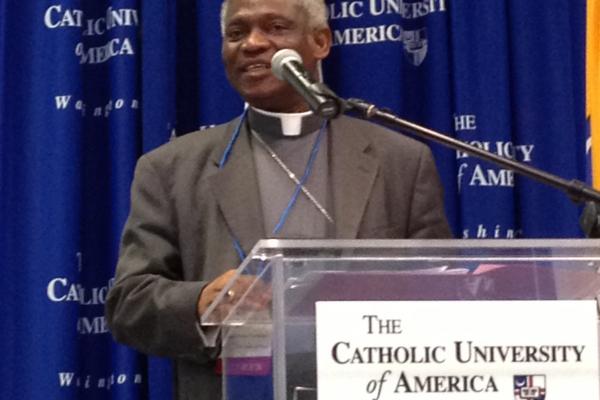On April 11, 1963 Pope John XXIII published an encyclical some initially dismissed as naive and myopic, as too liberal and too lofty. But today, his "Pacem in Terris" is generally lauded as genius and prophetic – well ahead of its time on the issues of human rights, peace, and equality.
As Maryann Cusimano Love, a Catholic professor of international relations, notes, the same year “Pacem in Terris” was published, spelling out the theological mandate for political and social equality for all people, women in Spain were not allowed to open bank accounts, Nelson Mandela was standing trial for fighting apartheid, and Walter Ciszek was serving time in a Soviet gulag simply for being Catholic.
On Monday and Tuesday, the Catholic Peacebuilding Network hosted a two-day conference at the Catholic University of America, commemorating 50 years since the publication of "Pacem in Terris.”
Read the Full Article

